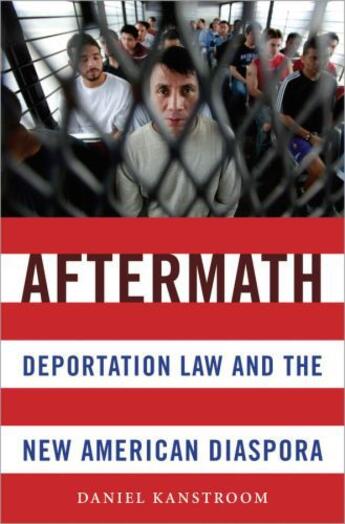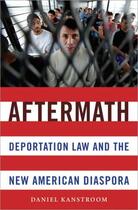Résumé:
Since 1996, when new, harsher deportation laws went into effect, the United States has deported millions of noncitizens back to their countries of origin. While the rights of immigrants-with or without legal status--as well as the appropriate pathway to legal status are the subject of much... Voir plus
Since 1996, when new, harsher deportation laws went into effect, the United States has deported millions of noncitizens back to their countries of origin. While the rights of immigrants-with or without legal status--as well as the appropriate pathway to legal status are the subject of much debate, hardly any attention has been paid to what actually happens to deportees once they "pass beyond our aid." In fact, we have fostered a new diaspora of deportees, many of whom are alone and isolated, with strong ties to their former communities in the United States.
Daniel Kanstroom, author of the authoritative history of deportation, Deportation Nation, turns his attention here to the current deportation system of the United States and especially deportation's aftermath: the actual effects on individuals, families, U.S. communities, and the countries that must process and repatriate ever-increasing numbers of U.S. deportees. Few know that once deportees have been expelled to places like Guatemala, Cambodia, Haiti, and El Salvador, many face severe hardship, persecution and, in extreme instances, even death.
Addressing a wide range of political, social, and legal issues, Kanstroom considers whether our deportation system "works" in any meaningful sense. He also asks a number of under-examined legal and philosophical questions: What is the relationship between the "rule of law" and the border? Where do rights begin and end? Do (or should) deportees ever have a "right to return"? After demonstrating that deportation in the U.S. remains an anachronistic, ad hoc, legally questionable affair, the book concludes with specific reform proposals for a more humane and rational deportation system.
Donner votre avis















